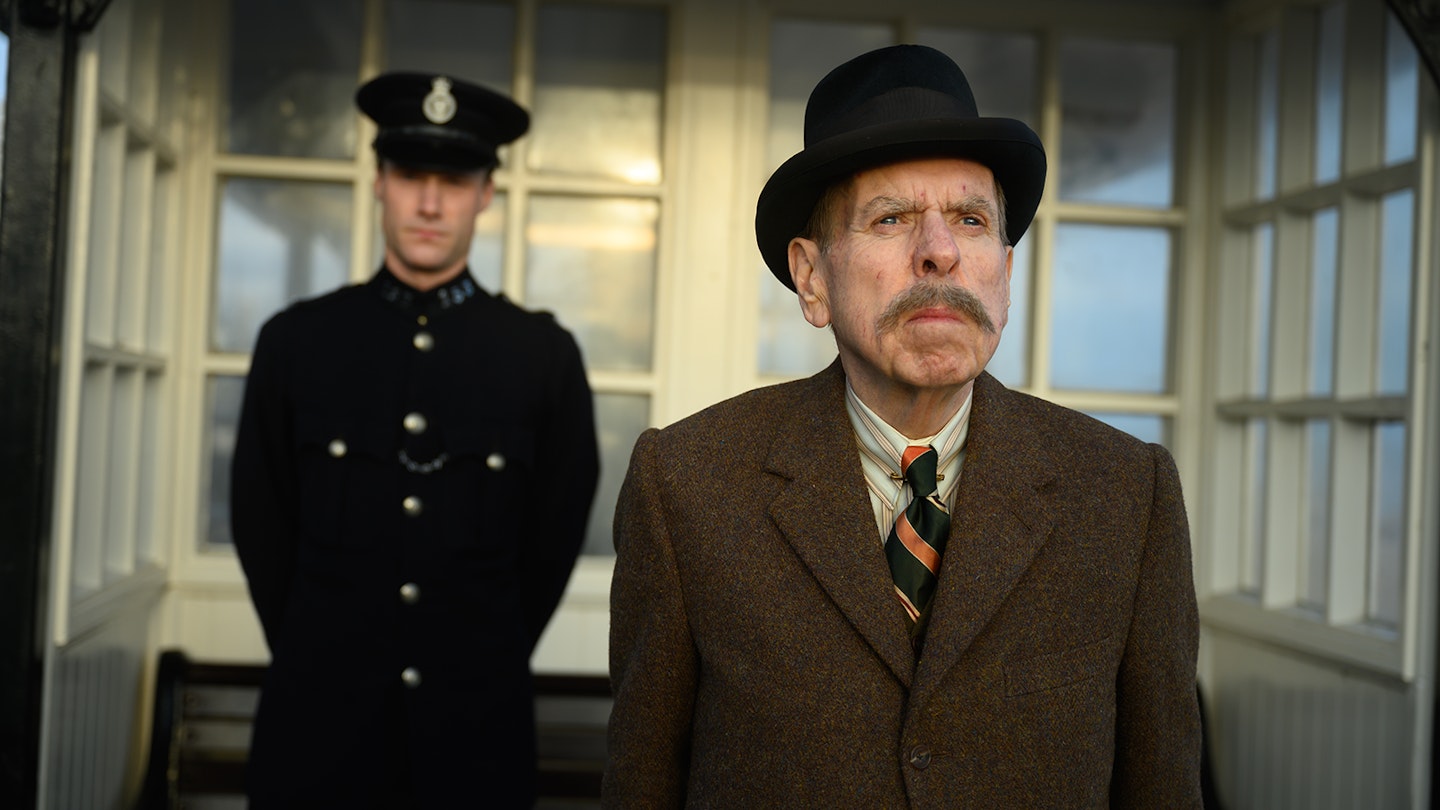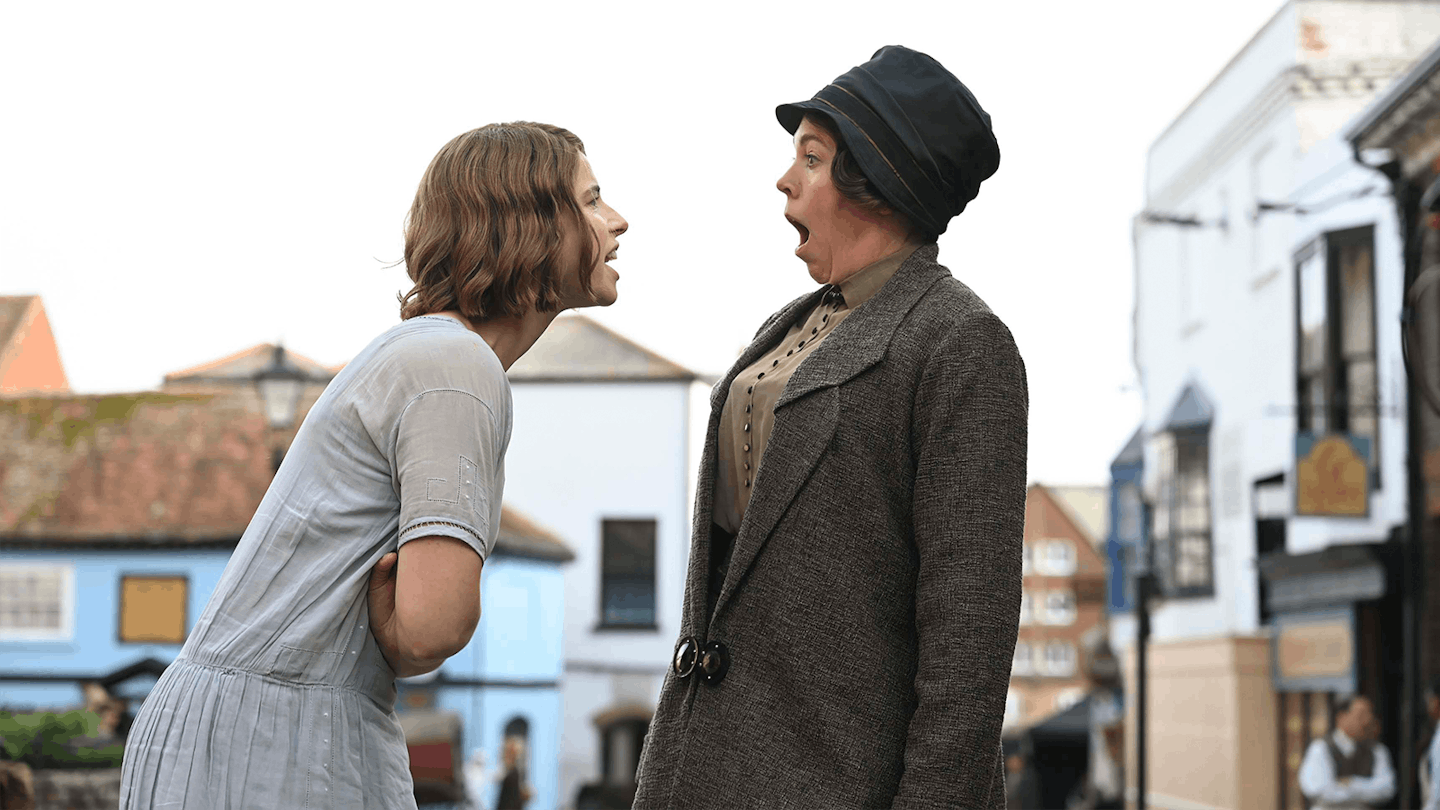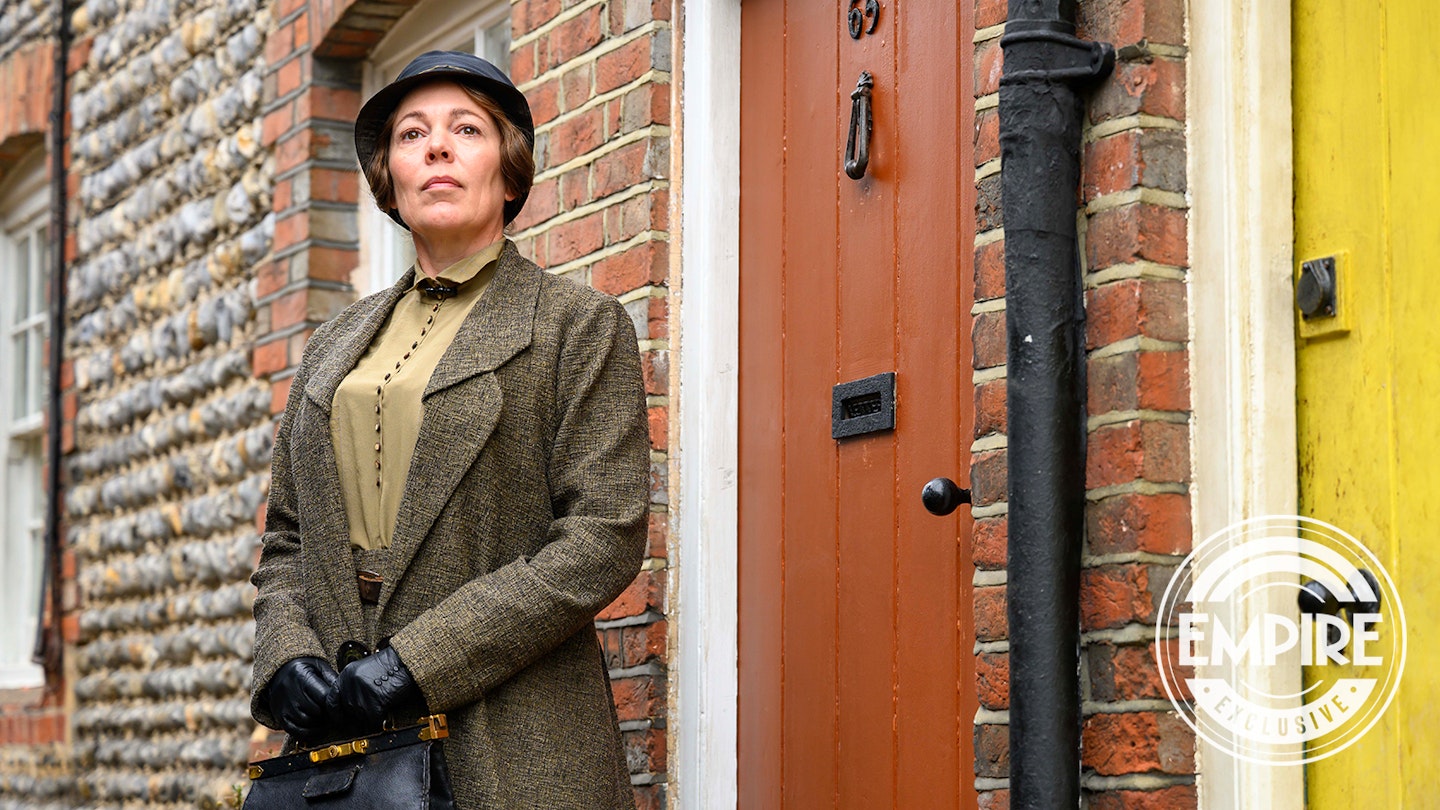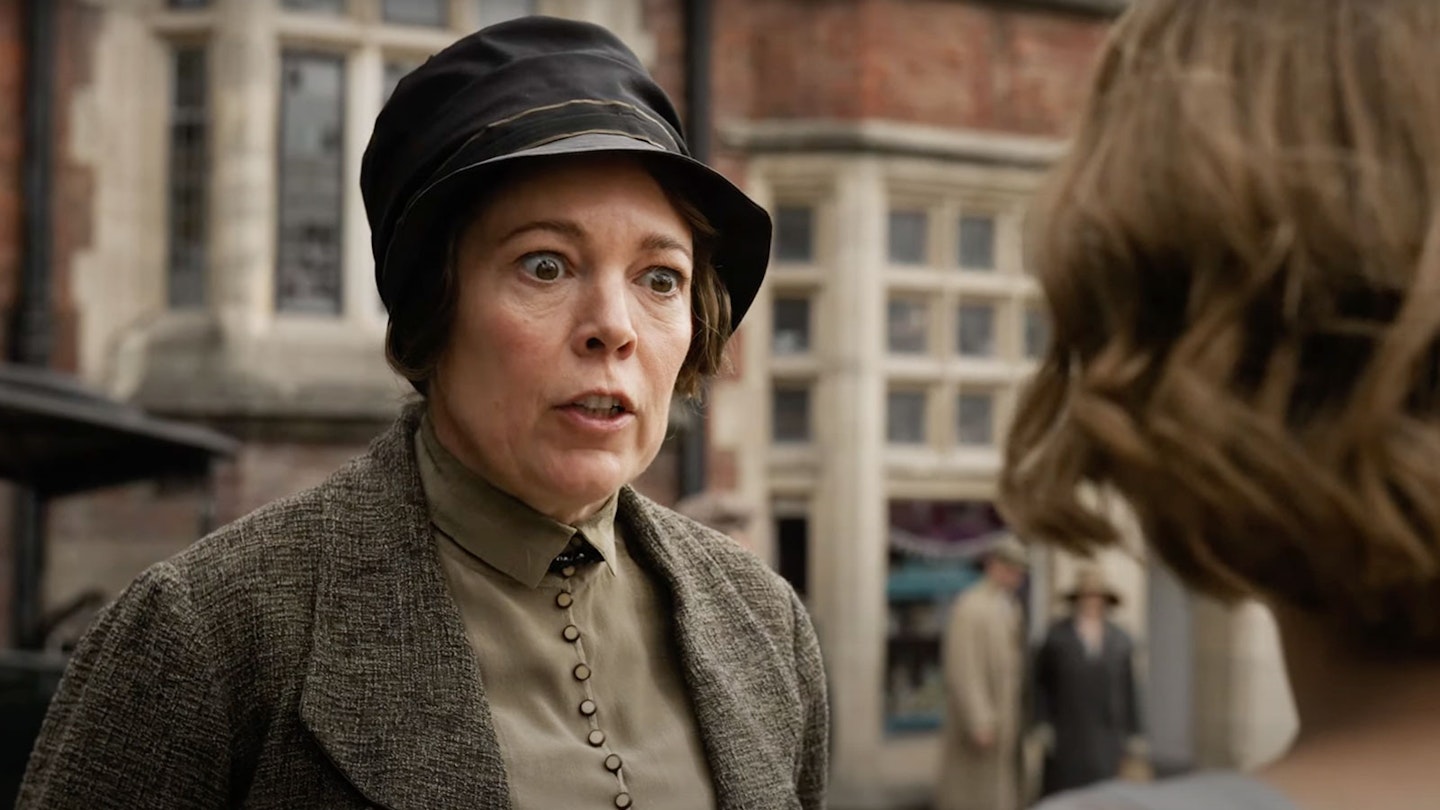“This story is more true than you’d think,” a title card informs us with a wink at the beginning of Wicked Little Letters. Based on a real case of poison-pen missives shocking the Sussex seaside town of Littlehampton in the 1920s, the film attempts to act as a kind of paean to British eccentricity, particularly a national propensity for swearing with gusto. It also portrays a nation on the brink of societal change, reeling from the horror of the First World War while the Suffragettes continued to fight for women’s right to vote.

Edith Swan (Olivia Colman) is an upstanding member of her community: a godly woman who still lives with her elderly parents and whose idea of a wild evening is a stimulating game of whist. Meanwhile, her neighbour Rose Gooding (Jessie Buckley), recently arrived from Ireland, is fond of a drink, sweary and sexually liberated, while also a loving mother. Curtain-twitching becomes all-out war, and even a national news story when Edith accuses Rose of sending her a series of creatively insulting anonymous letters, the latest of which calls Edith a “foxy-arsed old whore” and a “sad, stinky bitch”.
It all actually fares better when it leans towards drama and social commentary over comedy.
Though the letters can be amusingly florid, almost poetic, screenwriter Jonny Sweet is overly reliant on them from the get-go, with most of them raising titters rather than laughs. At times it’s all rather too quirky, like a swearier, less-funny Paddington film or Ealing Comedy.

The film also has an ensemble of beloved British comedy actors playing assorted oddballs, such as Joanna Scanlan, Lolly Adefope and Hugh Skinner, but all are under-served by rather weak gags. Anjana Vasan, playing a policewoman who suspects that Rose has been framed, tries her best, but is mostly stuck rolling her eyes at her fellow police officers’ stupidity.
It all actually fares better when it leans towards drama and social commentary over comedy. Timothy Spall is believably monstrous as Edith’s overbearing father, a small-minded man furious with a changing world. Buckley has the less interesting lead role but is still compelling as a young woman with the audacity to be raucous, sexual and imperfect. “She’s heinous,” Edith sniffs, “and she’s what we feared would come after the war.”
Unsurprisingly, Olivia Colman effortlessly elevates the weaker material, reminding us that her breakthrough was in comedies like Peep Show and Green Wing. She’s a naturally funny presence, and in her hands Edith is vulnerable yet vindictive, shrinking yet snobbish, in love with her own martyrdom and new-found fame.


